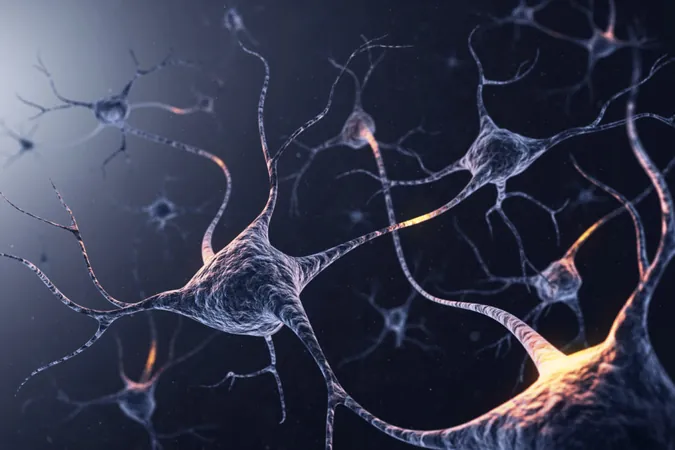
Unlocking the Brain's Sweet Secret: A New Weapon Against Neurodegeneration!
2025-06-30
Author: Nur
A groundbreaking study from the Buck Institute for Research on Aging has unveiled a surprising connection between sugar metabolism and protection against neurodegeneration. Published in *Nature Metabolism*, this research highlights that breaking down glycogen—long written off as merely a sugar reserve—could be a game-changer in battling diseases like Alzheimer's.
Revolutionizing Our Understanding of Glycogen
Traditionally, glycogen has been viewed as just an energy stockpile in our liver and muscles. However, researchers like Dr. Pankaj Kapahi from the Buck Institute argue that its role in the brain is far more significant and directly linked to neurodegenerative diseases.
The Glycogen Connection to Neurodegeneration
Led by postdoctoral researcher Dr. Sudipta Bar, the study analyzed both fruit fly and human models of tauopathy—a group of disorders that includes Alzheimer's. They found that neurons exhibiting tau pathology accumulated excessive glycogen, contributing to disease progression. Alarmingly, the toxic protein tau binds itself to glycogen, obstructing its breakdown and triggering further harm.
Oxidative Stress: The Silent Saboteur
This glycogen accumulation hampers neurons’ ability to manage oxidative stress, a hallmark of aging and neurodegeneration. The researchers discovered that by restoring the function of glycogen phosphorylase (GlyP)—the enzyme responsible for glycogen breakdown—the damage linked to tau was significantly reduced in their models.
Dietary Changes and Pharmacological Breakthroughs
Interestingly, dietary restriction (DR) naturally boosted GlyP activity, enhancing recovery in fruit flies. Researchers even demonstrated that the positive effects of DR could be mimicked pharmacologically with the use of 8-Br-cAMP, hinting at a promising avenue for developing drug therapies that could mimic the brain's natural sugar-clearing processes.
A Potential Shield Against Dementia
The findings do not just stop at fruit flies. Similar glycogen build-up was observed in human neurons derived from patients with frontotemporal dementia, suggesting that these insights could pave the way for innovative treatments.
Hope for a Brighter Future
Dr. Kapahi expressed optimism about these revelations, stating, "By discovering how neurons manage sugar, we may have unearthed a novel therapeutic strategy to combat age-related decline." As society grapples with an aging population, research like this offers insightful pathways to tackle dementia head-on, potentially unlocking crucial tools to safeguard our cognitive health for years to come.

 Brasil (PT)
Brasil (PT)
 Canada (EN)
Canada (EN)
 Chile (ES)
Chile (ES)
 Česko (CS)
Česko (CS)
 대한민국 (KO)
대한민국 (KO)
 España (ES)
España (ES)
 France (FR)
France (FR)
 Hong Kong (EN)
Hong Kong (EN)
 Italia (IT)
Italia (IT)
 日本 (JA)
日本 (JA)
 Magyarország (HU)
Magyarország (HU)
 Norge (NO)
Norge (NO)
 Polska (PL)
Polska (PL)
 Schweiz (DE)
Schweiz (DE)
 Singapore (EN)
Singapore (EN)
 Sverige (SV)
Sverige (SV)
 Suomi (FI)
Suomi (FI)
 Türkiye (TR)
Türkiye (TR)
 الإمارات العربية المتحدة (AR)
الإمارات العربية المتحدة (AR)